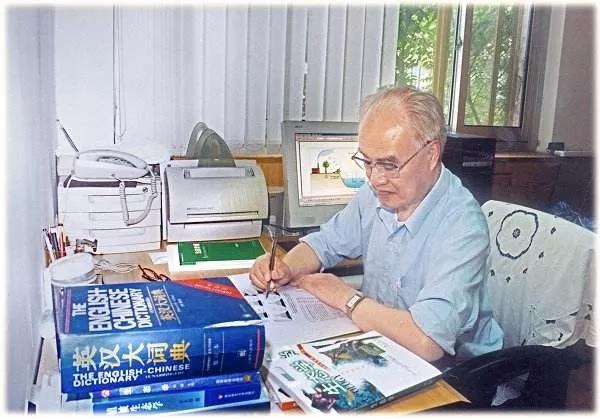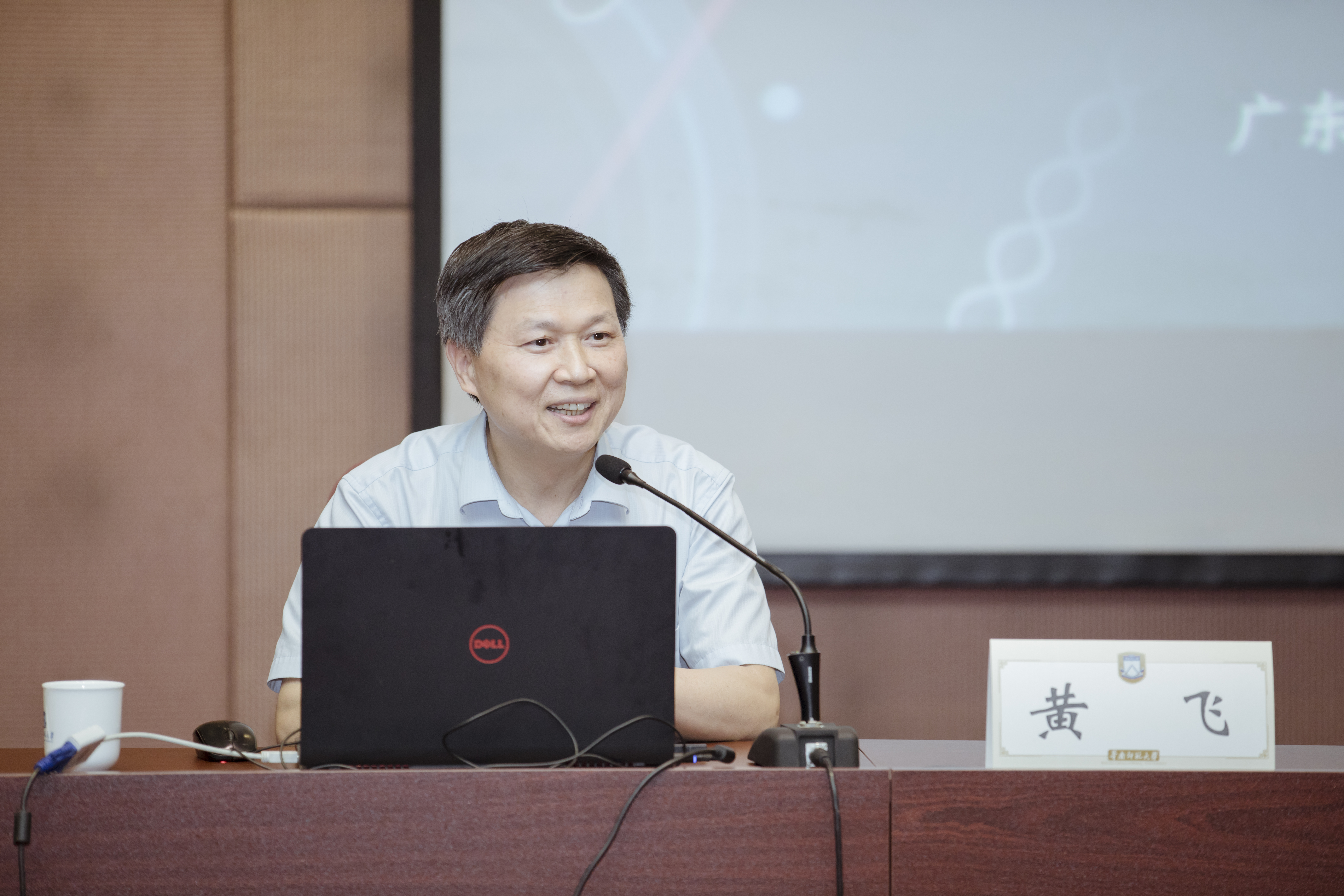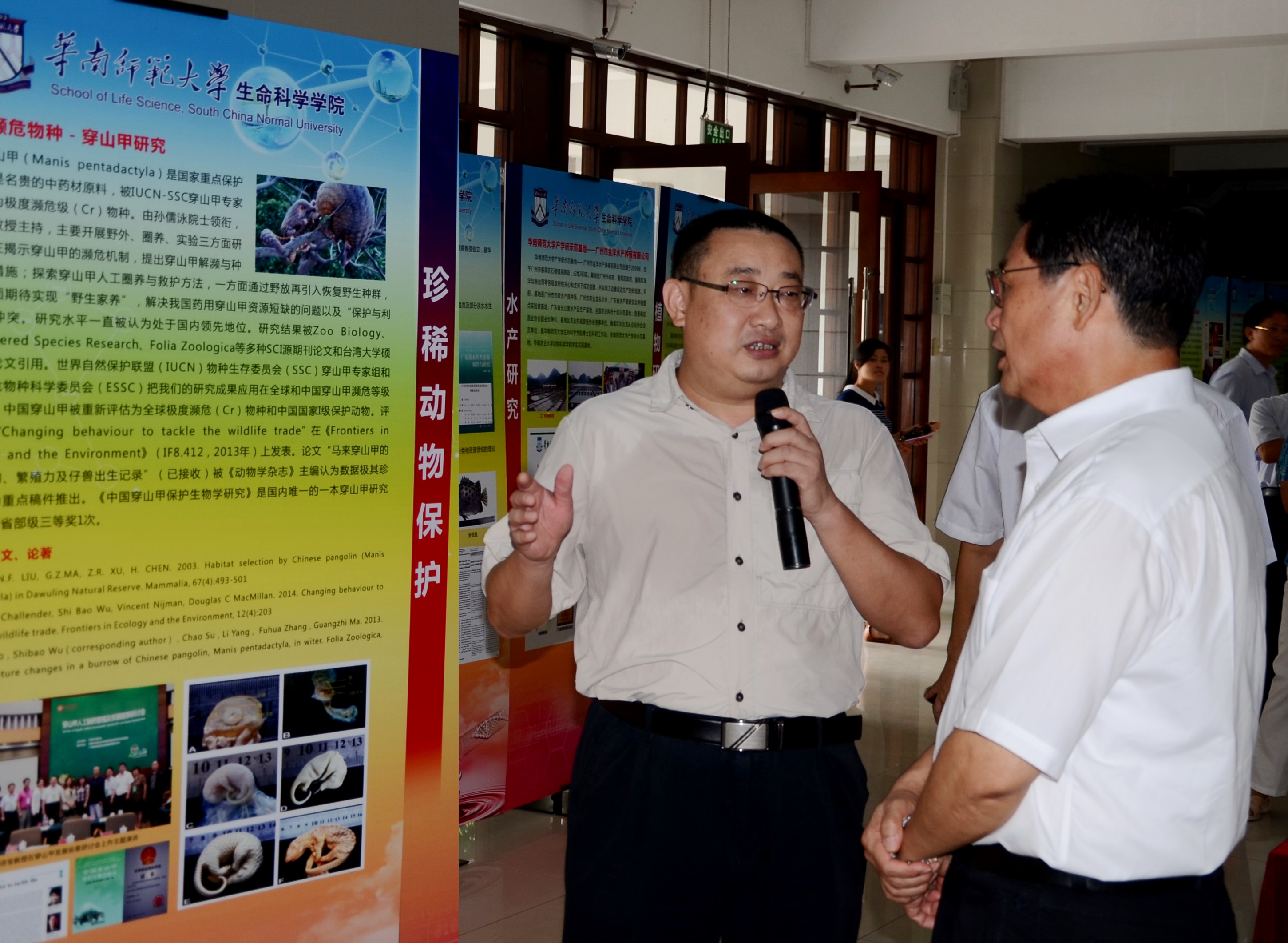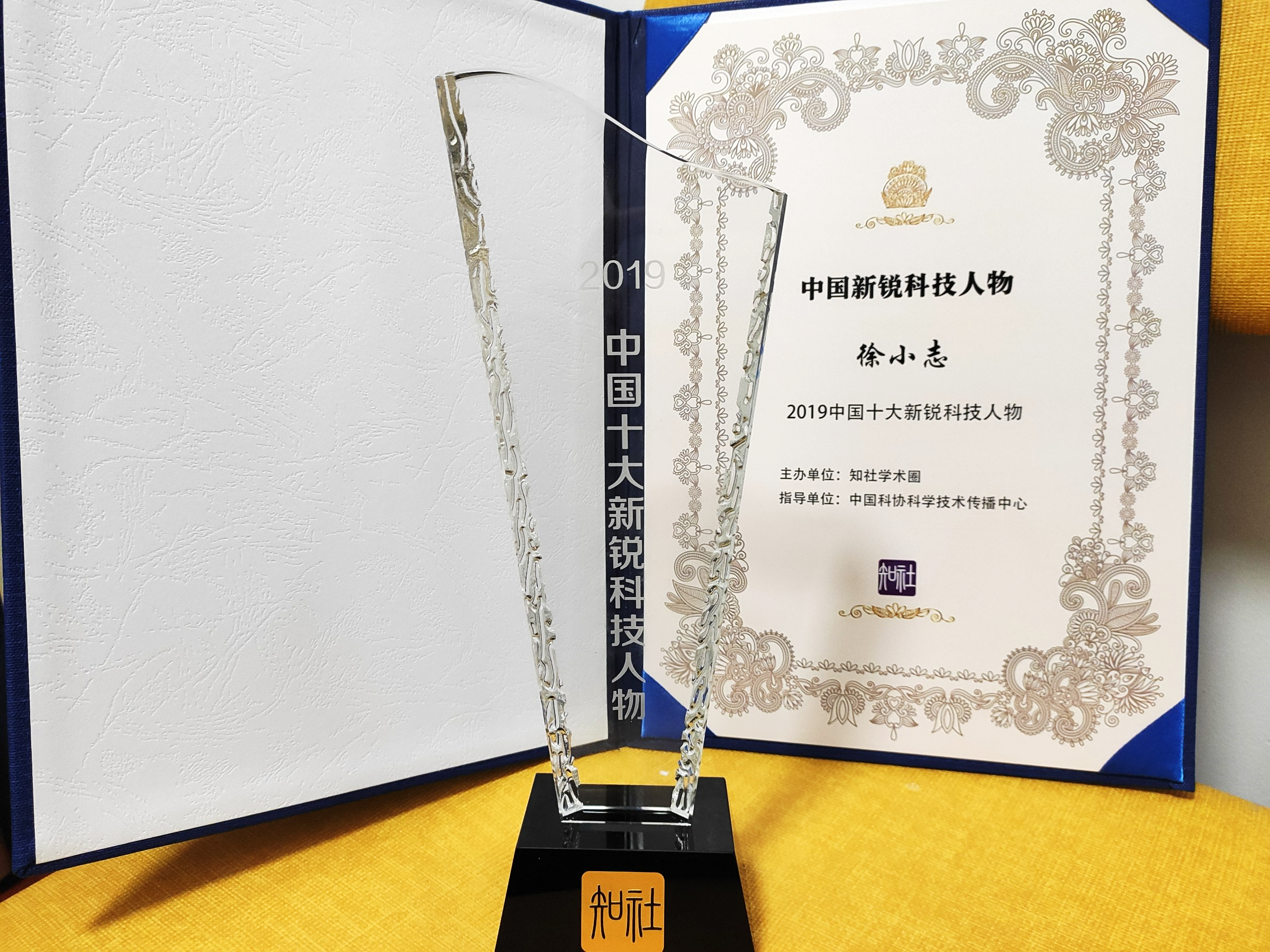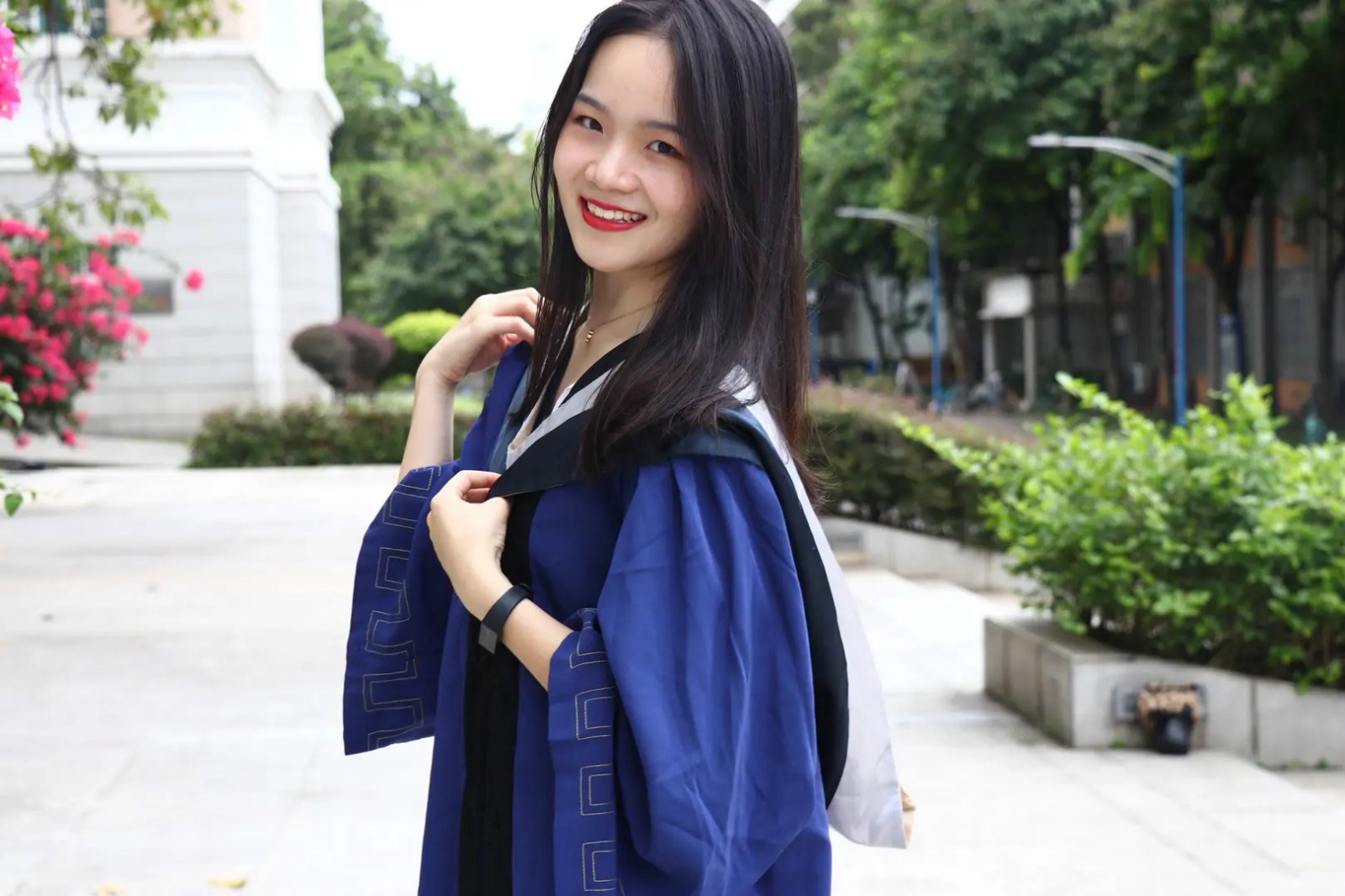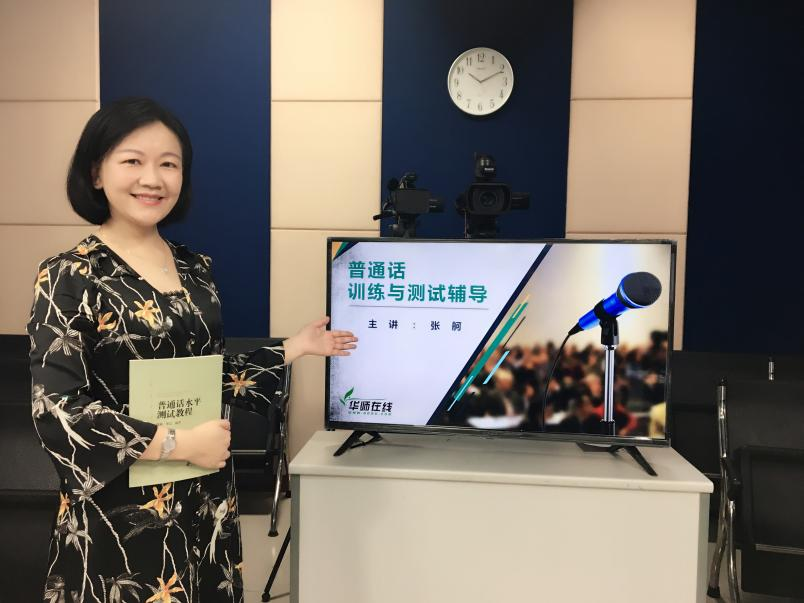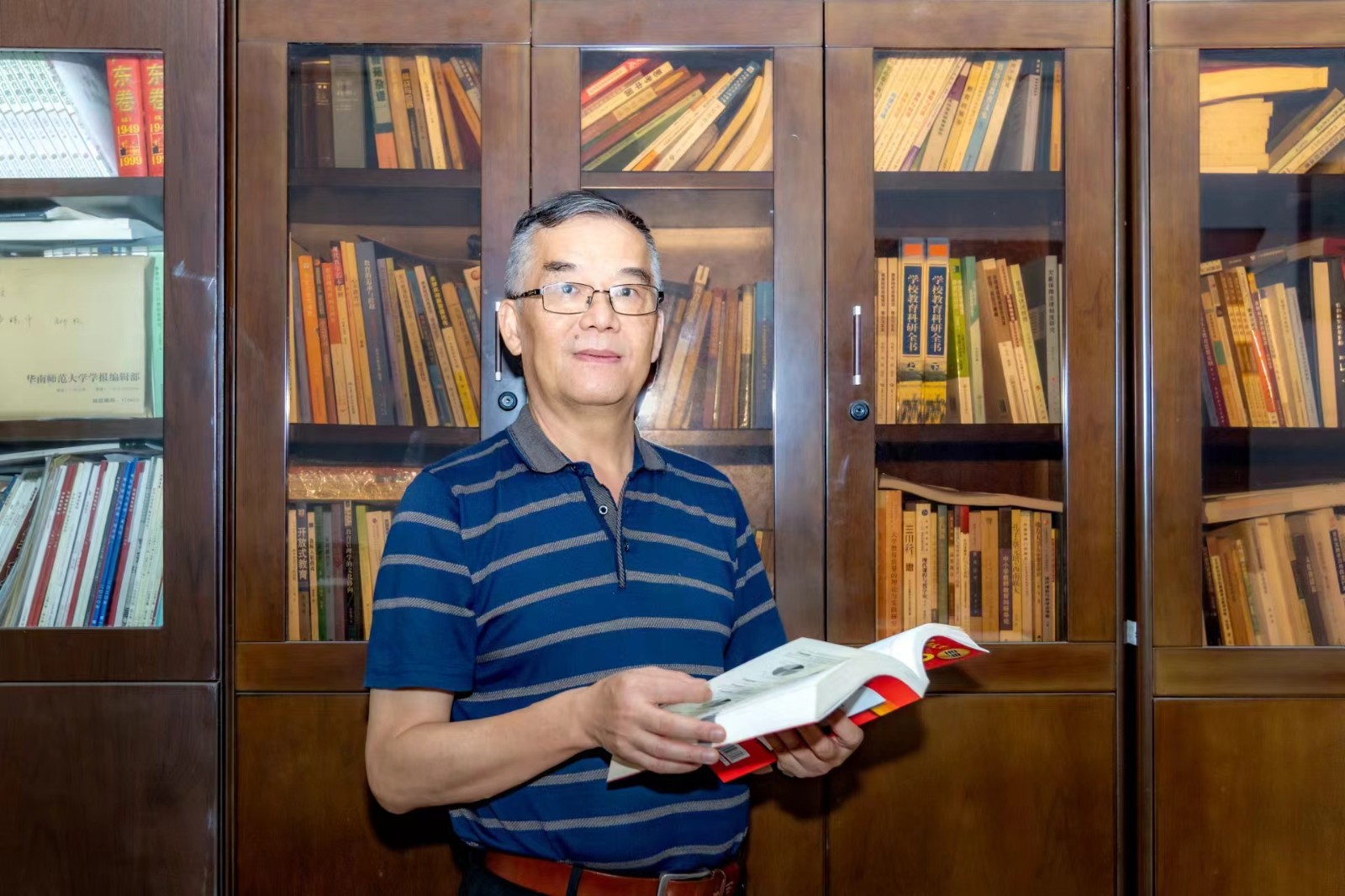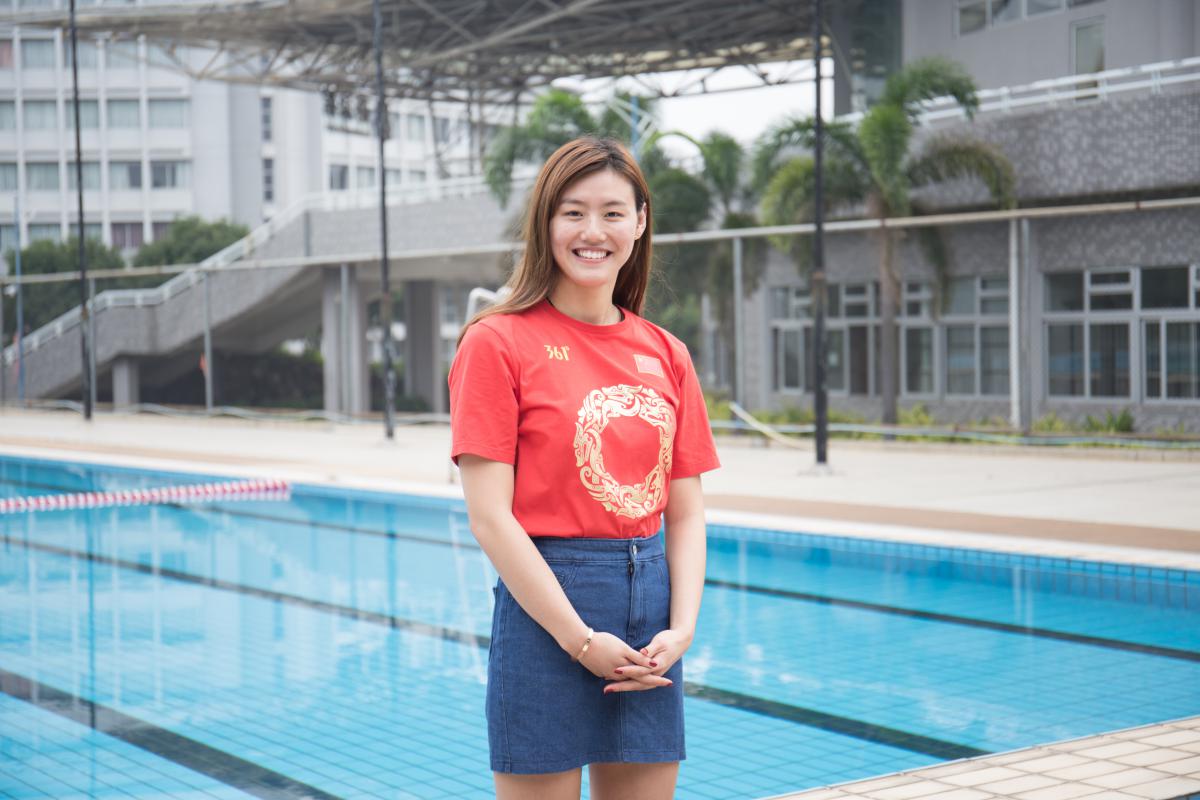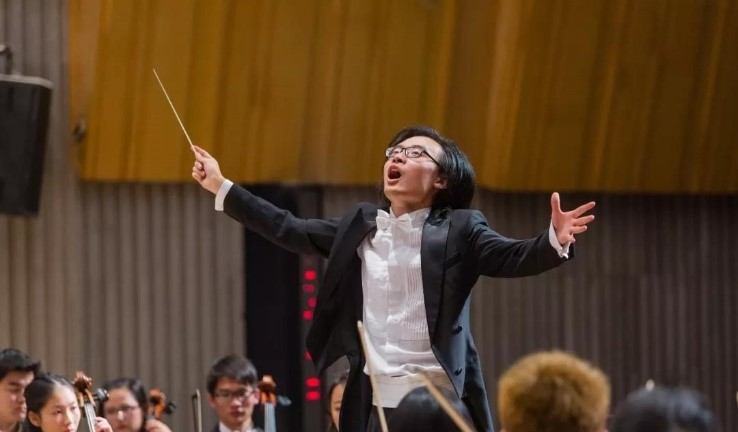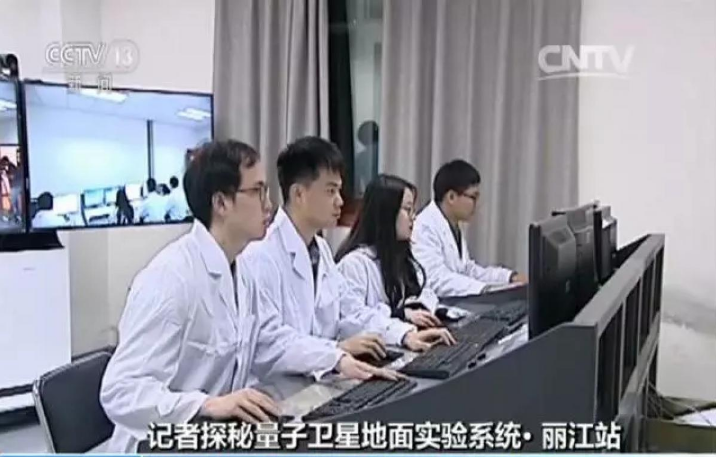
Likes
Li Zhengping, a graduate student from South China Normal University in 2004, was one of the members participating in the successful launch of the first Quantum Science Experimental Satellite Micius in the world.
Admitted into the major of Optical Information Science and Technology at the School of Information and Optoelectronic Science and Engineering of SCNU in 2010, he was later recommended to study at the University of Science and Technology of China for the doctoral program after graduation, majoring in quantum physics.

Li (left 2) and his teammates at work
Speaking of Li Zhengping's decision to study information technology and quantum mechanics, it could be summed up in this sentence, "it came from interest."
"My first lesson about science was from the animated cartoon named Thousands of Questions from Blue Cat. "At primary school, Li was extremely fond of this cartoon in which pictures of the vast universe and prehistoric dinosaurs flashed across the screen, arousing his initial curiosity about the world. This curiosity about the world was converted into the preference of science subjects.
Li Zhengping began to learn programming in junior high school. Apart from programming competition, he also solved the mathematical physics problems with programming. He could solve mathematical problems in a minute while others might spend several hours on them.
"Programming was a practical tool and it arose my interest in information technology." Thus, Li chose it as his major at university. In the physics class at college, Li first came across quantum mechanics, which fascinated him.
"Tunneling, Quantum Zeno and Quantum Entanglement are all amazing counterintuitive phenomena. Those patterns are magical." At that time, he did not expect that few years later, he would study quantum physics at the University of Science and Technology of China, further exploring the mysteries of the quantum world.
"Choosing to further study quantum was also influenced by my study experience at SCNU." Li said. At college, Li spent nearly all his spare time at the library. Zheng Zhiqi was one of his "library companions." He recalled that during the holidays, "Li still went back to the school library for self-study and during one summer vacation. He spent more than ten hours in the library studying programming, including C++ and algorithms." "It helped me master the whole structure of knowledge." Li said, who are crazy about a continuous and intensive learning style.
The project of the first Quantum Science Experimental Satellite Micius required a strong practical ability. Li noted that it was at college that he cultivated such ability. "The course at college provided me with lots of experimental opportunities, such as circuit, digital electricity and optical experiment, etc., so that I could experience the fun of knowledge and experimentation in practice."
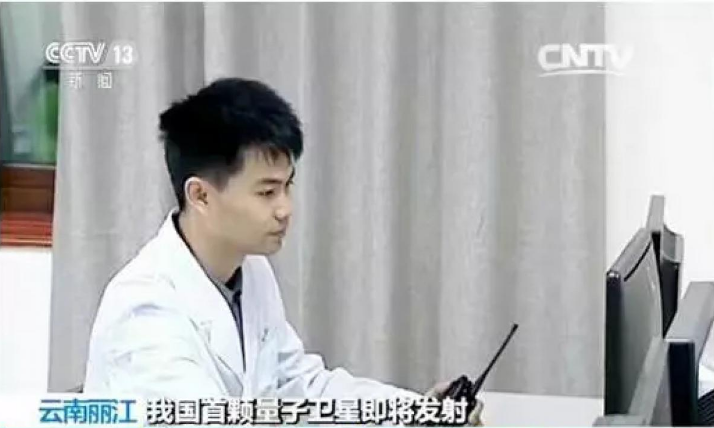
Li is devoted to preparing for experimental missions in Lijiang
The quantum satellite project contains huge and complex system, in which a small mistake could bring fatal consequences. When the experimental task was being carried out, the work of tracking satellites and receiving photons are needed. "When the satellite was launched, I was preparing for some experimental missions at the Ground Receiving Station in Lijiang," Li Zheng ping said. Li's work at the Lijiang ground receiving station is an important part of the system. "If you are cautious and meticulous, you will have an organized and clear thinking, and thus you will be able to solve problems more easily," He stressed.
In terms of plans for future, Li hopes to write more scientific achievements concerning this area to his name and as for the students studying in SCNU, he said, "the undergraduate students are supposed to have a reasonable arrangement of time, studying regularly and preparing for the future."
Source from the News Center of SCNU
Translated by Wen Yanyu
Proofread by Edwin Baak
Reviewed by Li Jianru
What to read next:
